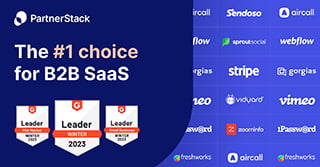Sales
Top eCommerce Challenges For Non-Tech Newcomers

Keen to start an eCommerce business, but you’re not sure you’ll cope with the tech challenges to make it a success?
Technologies keep changing, and eCommerce brings its own set of challenges.
This article has tips that will assist you with your eCommerce startup.
The global eCommerce market is soon to reach $8 Trillion – a prediction from Statista that this will happen in 2026. There are only 19 countries with a GDP of more than a trillion, so that shows you just how important eCommerce is to trade.
Businesses without eCommerce technical staff need to hire freelancers use subscription services to overcome the challenges of securing the following aspects of a successful e-commerce business:
- Technical expertise – site development, administration, SEO and more
- eCommerce infrastructure – hardware, software
- Security – site, payment transactions, customer data
1. Expertise
When you’re a non-tech starting an online business, you’ll need the initial investment to hire technical expertise.
If you really know very little about the technology required to run a successful eCommerce site, then before hiring staff, you need a consultant who can steer you in the right direction so you get the resources you need to get set up.
The same consultant or consultancy may also be required to assist you with the next phase of growth, i.e. scaling the site to cope with more traffic.
Your business will also need freelancers and employees who can manage the day-to-day technical requirements from website admin and performance to development, SEO, and security.
Staffing in some tech areas may be problematic due to high demand and skills shortages. Consider offshore remote workers and outsourcing to get the needed services, including website hosting, admin and development.
2. Infrastructure
The infrastructure needed for an eCommerce business includes hardware and software.
Today, we’re up to 3.0 eCommerce infrastructure, which includes using SaaS eCommerce providers including Shopify, BigCommerce and social media sites now also offering the market place, e.g. Facebook and Instagram.
The most formidable challenge for non-tech newcomers is choosing where to operate their online business. The easiest option is using a SaaS provider; however, to grow and compete, customers expect your business to have its assets, like a fully functioning website.
Website Performance
The challenge to deliver website performance, ideal UX (user experience) and site security is enough to make an eCommerce store newcomer run for the hills before they’ve even opened for business.
PCMag puts website performance as their number 2 tech challenge, due to customers demanding fast-loading pages. If an eCommerce page loads slower than 1-second, the techies should be working on a solution to speed it up.
A news or blog site like BusinessBlogs doesn’t need to load quite as fast, but ideally, it should be online in under 3 seconds.
3. Security
eCommerce site security will probably be your biggest headache until you hire an IT security professional. With cybercrime like identity fraud and cyberattacks, including ransomware, site security can keep you awake at night as it’s multifaceted and includes:
Transport Socket Layer (TSL)
TSL can be achieved with HTTPS, and it needs to support TSL 1.2 (minimum), TSL 1.3 (ideally)
Payment Gateway Security
You’ll know you’ve got secure payment gateways when your business passes PCI-DSS compliance, which goes deep with 12 requirements covering everything from firewalls to network access to protect cardholder data.
Accepting Cryptocurrencies
Another challenge for eCommerce businesses is when to accept cryptocurrencies. There are pros and cons to allowing cryptocurrency payments, and it’s straightforward, too, with a PayPal account.
Hacking, Phishing, DDoS Attacks etc
Every business needs to protect its online assets from cybercriminals.
Newcomers to eCommerce businesses will find the security requirements to protect their site and customers overwhelming.
Hire IT security experts to get suitable systems, security plugins, processes and monitoring tools.
Ensure they are configured correctly and your admin applies the security updates. Site security is a big topic, and we have a c,ategory dedicated to it here.
Customers expect a seamless and secure sales transaction where their data is safe. Attaining certification in PCI DSS for credit card payments and if your online shop accepts cryptocurrencies, there is CCSS compliance, too.
4. UX (User Experience)
Your customers won’t always land on product pages, so this is where UX plays an important role. Your site will need continuous improvement to improve visitor engagement and conversion. UX is also a big topic, and this article is a great read, providing the basics of what a site needs for UX, including:
- site performance
- content
- theme
- branding
5. Chatbots, AR, AI
Shoppers not entering a physical store to try items for size and look still want the ‘dressing’ experience.
Augmented Reality (AR) fills the gap
For example, you can load up a photo taken from your mobile, which will show you how your picks of sunglasses will look on you. Another example is uploading an image of your living room and viewing the store’s furniture in your living room!
AR offers the ultimate online try-before-you-buy experience.
Chatbots
Chatbots are now a prerequisite for eCommerce stores. Online buyers are used to using chatbots so they can have their questions answered and complete the purchase.
Retail chatbots use AI, so they are more innovative and can solve more customer queries before escalating to a human. You can imagine how the smarts of machine learning have lowered shopping cart abandonment.
AI
Artificial Intelligence is used in apps and automation for customer data capture to post-purchase follow-up emails and mobile messages. AI is a big topic and a significant part of marketing, customer discovery, and insights.
6. Mobile, eCommerce Platform
Finally, you’ll need an eCommerce platform, and there is plenty on offer, including:
- WooCommerce
- Shopify
- Wix
- Weebly
- BigCommerce
- Magento
- Squarespace
Do thorough research when choosing your eCommerce platform, and remember to consider what you need now as a fledging online shop and what you’ll need as the business takes off.
Mobile-first
While you’re sitting at your desktop, and let’s be honest, we all love the large screen. However, it is mobile-first, and your site has to perform in every sense of the word for customers using their mobiles.
Google is mobile-first, and we have not mentioned SEO yet, but it is also a challenge for all eCommerce stores. Online shopping is growing, and your site will need to be SEO optimized for mobile-first to be found in search.
7. SEO
SEO is serious business for eCommerce sites, so engage an SEO expert to work on your site so it ranks for keywords associated with your products and market fit, i.e. your customers.
Summing Up
There are many challenges to starting an eCommerce business. This post has covered the most common tech challenges with site security, performance, UX, technologies and expertise. Now, you may be interested in the benefits of eCommerce for business.









